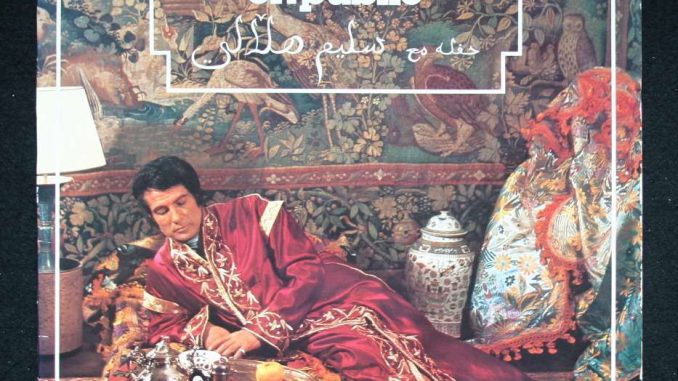
Salim Halali is of Algerian origin, but his love for Morocco goes beyond all limits. This artist received great respect for his art from the late King Hassan II, who wanted him to sing at all his daughters’ weddings and Palace events, just as he particularly enjoyed listening to him sing “Ma idich Mama”, a song with a particular influence on the Hassan II.
Salim Halali, who was also known for his mastery of “Derbouka” (an oriental musical instrument), excelled in performing several musical genres, ranging from popular song to “Malouf” and “Ghranati”. He also sang in several languages and dialects, taking advantage of his strong voice that no other voice in the Arab world could match to such an extent that Umm Kalthoum was enchanted by it at a concert in London. “What a majestic voice! “was her comment, as confirmed by Salim Halali himself in an interview on Israeli radio.
Salim Halali was a fan of nightlife and festive evenings since he settled in France in the 1940s, when he fled Annaba, the Algerian city where he was born in 1920 to a Jewish family from Chaouiya.
He settled in Casablanca after years spent in France, where he became famous and made a fortune that allowed him to open “Le Coq d’or”, a nightclub in the heart of the old city that quickly became the go-to place for many famous families as well as for important figures.
Salim Halali invited the great Moroccan and Arab artists to his club, which was the birthplace of many great Moroccan artists, such as El Hajja El Hamdaouiya, Latifa Amal, El Maati Benkacem, the great lutenist Omar Tantaoui, etc.
Salim Halali was almost killed by the pro-Nazi and anti-Semitic Vichy regime while living in France. He was pursued in the streets before finding refuge at the Paris Mosque where he sought protection from his imam Qaddour Ben Ghabrit, who saved his life by making him look like a Muslim.
Salim Halali died in 2005 in a retirement home in Cannes, France, after living alone and isolated and after leaving a rich musical legacy of a set of famous songs, such as “Mahanni Ezzine”, “Dour biha Ya Chibani”, “Liam”. Sidi Hbibi”,” Achekt tafla andalusia”; “Ya Nass, hjart wa safert labrour”; “Tah tkhabbal”, etc.

Be the first to comment